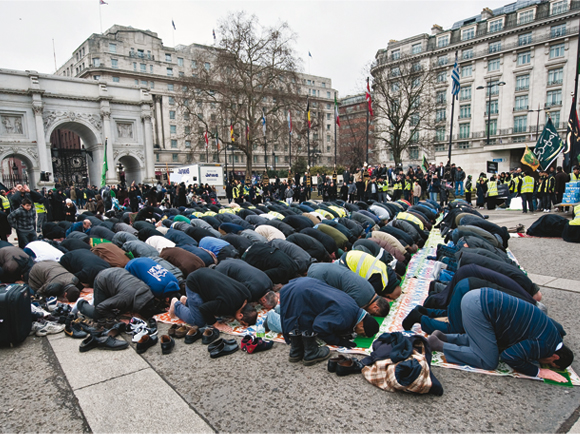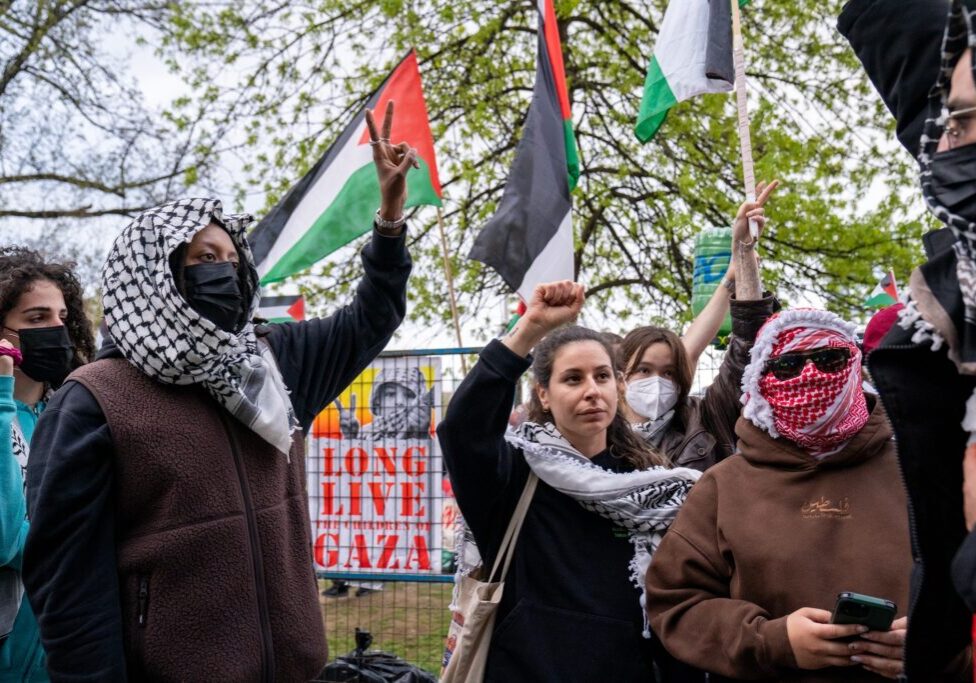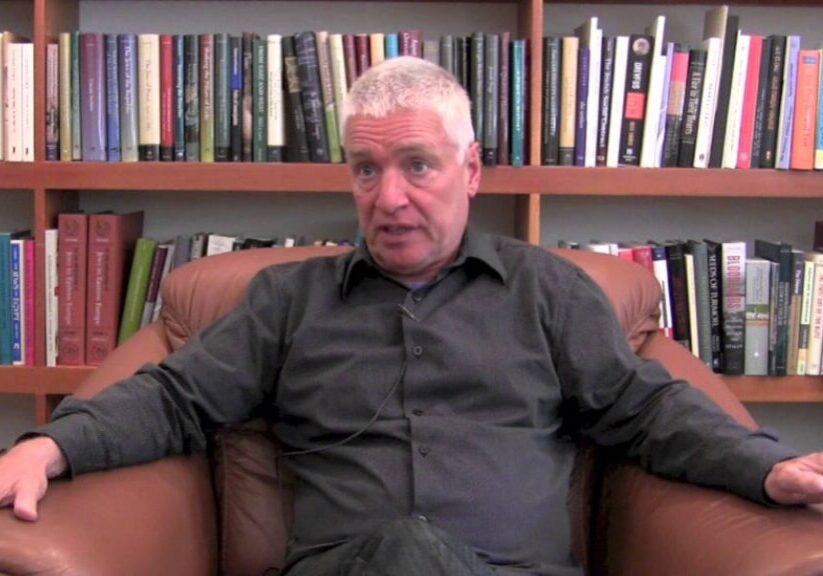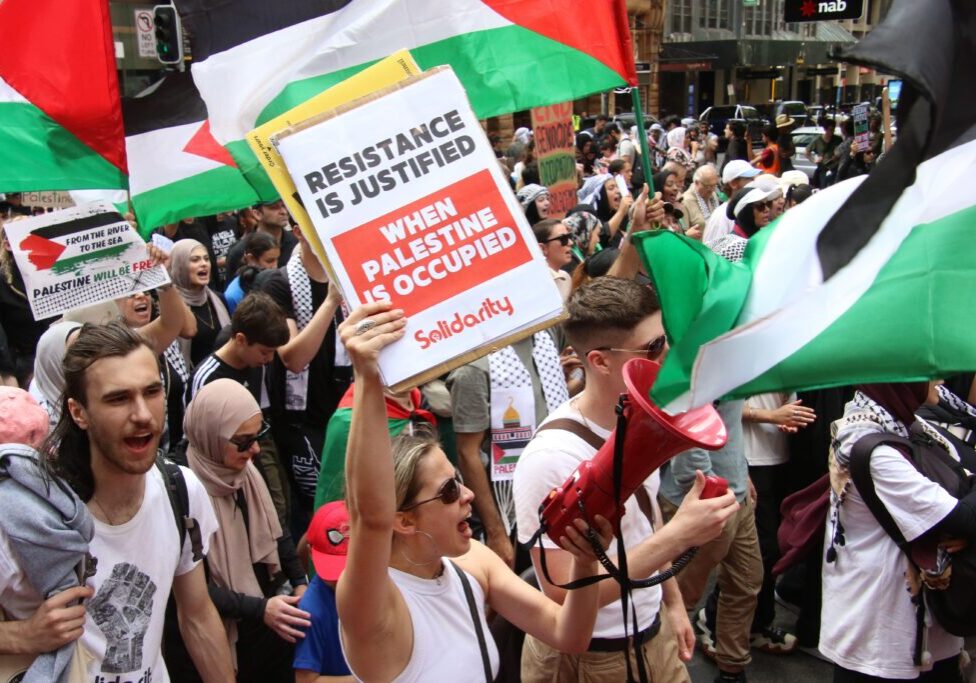Australia/Israel Review
Scribblings: European Antisemitism and Muslim communities
May 28, 2015 | Tzvi Fleischer

Tzvi Fleischer
European Antisemitism and Muslim communities
As AIR has reported, there has been a clear and dramatic rise in antisemitism in Europe in recent years. I won’t repeat all the statistics again, nor the evidence that in many cities it is simply unsafe to be identifiably Jewish on the street.
Why has this happened? The reasons are doubtless complex and include the generational fading of taboos against traditional antisemitism that developed after the Holocaust, unrest over immigration and social change, and the licensing of increasingly extreme claims about Israel on the political left. Antisemitism is thus becoming more prevalent and more openly expressed on both the far left and the far right.
However, there also seems little doubt that some of the increase emanates from first and second generation immigrants from the Middle East. Many of these immigrants seem to have brought antisemitic attitudes common in the region with them to Europe, or later become attracted to often antisemitic ideological trends prevalent in the Middle East, such as Islamism.
German scholar Dr. Günther Jikeli appears to have confirmed this reality in work he has done for the Institute for the Study of Global Antisemitism and Policy in New York, based mainly on two major surveys done in France last year by the Fondation Pour L’innovation Politique. Those surveys put six traditional antisemitic statements to members of the French public at large, to supporters of the far right Front National, to supporters of the far left Front de Gauche, and to French residents who described themselves as “born into a Muslim family.” The statements were: that the Jews have too much power in the economy, the media or politics, are responsible for the current financial crisis, exploit the Holocaust for their own benefit, and that there is a “Zionist conspiracy on a global scale.”
The Muslim subset recorded the highest level of agreement on four of the six statements. The two exceptions were the one about exploitation of the Holocaust, where 62% of far-right sympathisers agreed compared to 56% of Muslims, and the claim about Jewish responsibility for the global financial crisis, where 19% of far-left supporters agreed, compared to 13% for Muslims.
In all, 46% of the Muslims surveyed answered yes to four of more of the six statements, compared to 27% for far right supporters, 22% of far left supporters and 15% of the general population.
Moreover, the studies showed a clear correlation between religious observance by Muslims and antisemitic attitudes. On all questions, self-described “believing and practising” Muslims and “believing” Muslims answered yes more often than those who described themselves merely as of “Muslim origin” and on most questions “believing and practising” Muslims agreed in substantially higher proportions than “believing” Muslims.
The results from the “believing and practising” Muslims were pretty frightening. For five of the six antisemitic statements, well over 50% of this group agreed (the exception was the one about the global financial crisis).
Citing other surveys from Germany, Denmark, Belgium, the Netherlands, and Sweden, Jikeli shows these results are not limited to France – Muslims in all these countries are much more likely than the general public to agree with antisemitic statements.
He also noted that the studies show that “Demographic and socio-economic variables… cannot explain the differences between Muslims and non-Muslims” so this is not simply the result of economic deprivation or lack of education.
It thus seems clear that a large part of the recent increase in antisemitism in Europe is associated with Muslim communities. It follows that the solution will require successful outreach and education focused on these communities – and perhaps especially on mosques, given the apparent prevalence of antisemitic beliefs among the most religious European Muslim populations.
It would be fair to say that European elites have largely been reluctant to acknowledge this reality – perhaps because they are afraid to be seen as targeting the often genuinely disadvantaged Muslim communities of the continent. But they are going to have to do so if they are going to be at all serious about tackling the frightening rise of antisemitism in Europe.
BDS and anti-Normalisation
I was saddened but not surprised to read that, on May 11, Palestinian “anti-normalisation” activists broke up a conference at a hotel in east Jerusalem where Israelis and Palestinians were meeting to discuss the two-state solution. The conference, organised by the NGO Israel Palestine Centre for Research and Information, paid for by the Dutch government and featuring far-left Israeli activists and Palestinian representatives, was unable to go ahead after demonstrators stormed the stage, chanting that any Palestinian who shares a stage with an Israeli is a traitor.
Similar conferences have been broken up by “anti-normalisation” activists at least twice in the last year.
Such activists are of course counter-productive to the Palestinian cause, denying Palestinians the opportunity to put their case to sympathetic Israelis or coordinate strategy with them – but their beliefs are also very ugly. It is all about dehumanisation – Israelis and Jews must be treated as nothing other than faceless enemies, you must not interact with them as human beings.
Yet anti-normalisation, this long-standing, particularly ugly strain in Palestinian nationalism, going back decades, is basically at the root of the international Boycott, Divestment and Sanctions (BDS) movement against Israel. When BDS activists are asked why they boycott Israel, but not far worse human rights violators like North Korea or Sudan or Zimbabwe or China or Syria, they typically answer that they do so because Palestinian civil society asked them to do so, unlike those other cases.
But the Palestinian civil society they mean is anti-normalisation activists – more or less the same people who stormed that stage in Jerusalem, denouncing as a traitor anyone who talks to any Israeli, no matter how sympathetic. At base, BDS types are hitching themselves to the ugliest, most counter-productive and most atavistic impulses of Palestinian nationalism.
Tags: Anti-Zionism






